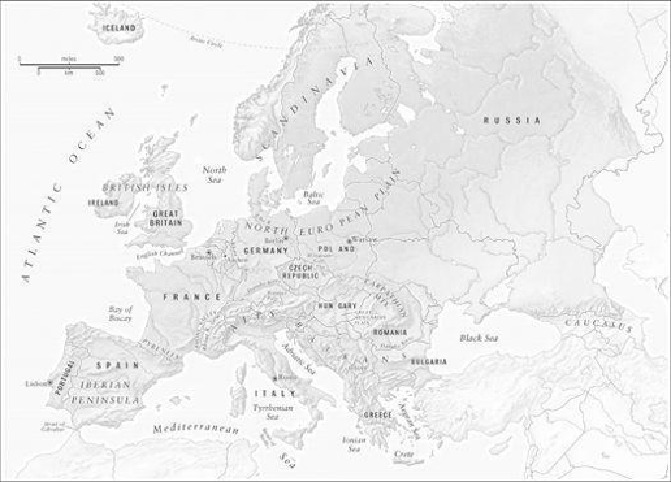Geography Reference
In-Depth Information
Europe, as we know from Mackinder, has had its destiny shaped by the influx of Asian
hordes. And indeed, in the twenty-first century, Europe will continue to be pivotally influ-
enced by its relations with the East, particularly with Russia. The degree to which Central
and Eastern Europe can develop a belt of prosperous and stable states from the ashes of
communism will go a long way to protect Europe from Russia, and, in the process, convert
the dream of a revived
Mitteleuropa
into reality: a dream that liberal intellectuals actually
share with Mackinder.
Yet Europe, precisely because of its quest for a wider and deeper unity, will also continue
to be bedeviled by its own internal divisions, which, despite the economic form that these
rifts now exhibit on the surface—as with German anger over the Greek debt crisis—are in
truth the timeless expressions of geography: that is to say, the different development pat-
terns of Germany in northern Europe and Greece in Mediterranean and Balkan Europe.
Europe, largely because of how technology facilitates the movement of peoples, will cer-
tainly see its history increasingly intertwined with Africa to the south and Asia to the east.
But concomitantly, Europe will not be denied its variety within. In other words, the very
fact that Europe at the moment faces no conventional military threat could leave it prey to
the narcissism of small differences. And that, in turn, could make Spykman's worries about
a unified Europe challenging the United States premature.

